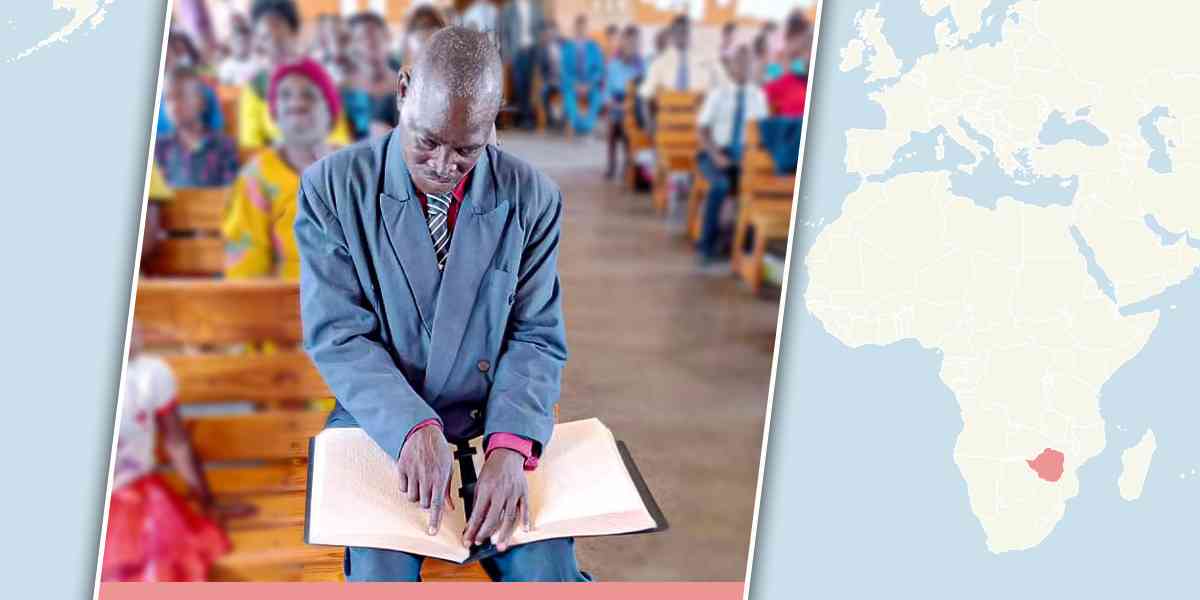
Jehovah’s Witnesses, a global organization of volunteer ministers has made major advancements in assisting the blind or visually impaired receive the Bible’s message of hope.
Zimbabwe is home to just over 10 000 blind or visually impaired people while globally, 43 million people are living with blindness and 295 million people have moderate to severe visual impairment, according to a report by the International Agency for the Prevention of Blindness’s Vision Atlas.
To acknowledge this large community, World Blindness Awareness Month is observed in October to bring attention to the realities of living without sight.
Realizing the challenges, Jehovah’s Witnesses have been providing - free of charge - scripturally-based audio, video and print content in formats compatible with the technology used by those who are blind or visually impaired.
“The message of comfort and hope found in the Bible should be made available to everyone,” said the spokesperson for Jehovah’s Witnesses, Kudakwashe Chikuvadze.
“For this reason, we have made a concerted effort to reach more than 10 000 in our communities in Zimbabwe who are blind or visually impaired.”
To help the blind or visually impaired navigate jw.org, the nonprofit’s official website, the Witnesses developed the jw.org skill on Alexa. The skills allow Alexa-enabled devices to play or read aloud Bible-based content from jw.org.
The Witnesses are also incorporating accessible tools into their growing library of educational videos. For instance, audio descriptions in more than 90 languages are available for most of their online visual content.
- Young entrepreneur dreams big
- Chibuku NeShamwari holds onto ethos of culture
- LSU students win innovation prize
- Mhofela finally drops album
Keep Reading
In 2020, during the COVID-19 pandemic, they launched their first virtual global convention that featured 114 videos equipped with audio descriptions explaining the on-screen action. Similarly, electronic versions of their publications include audio descriptions of images.
The vividly narrated videos, photos and illustrations help Thabo, who is visually impaired, feel included and cared for.
“I truly feel like I belong to a beautiful worldwide family of fellow believers when I am able to learn from the same materials as everyone else,” said a visually impaired beneficiary named Thabo.
“Now I don’t feel so isolated and alone.”
The Witnesses offer literature in several languages for the blind or visually impaired in braille, audio, large-print Rich Text Format and Electronic files for screen readers on their jw.org app or website.
They also print Braille in 48 languages.











